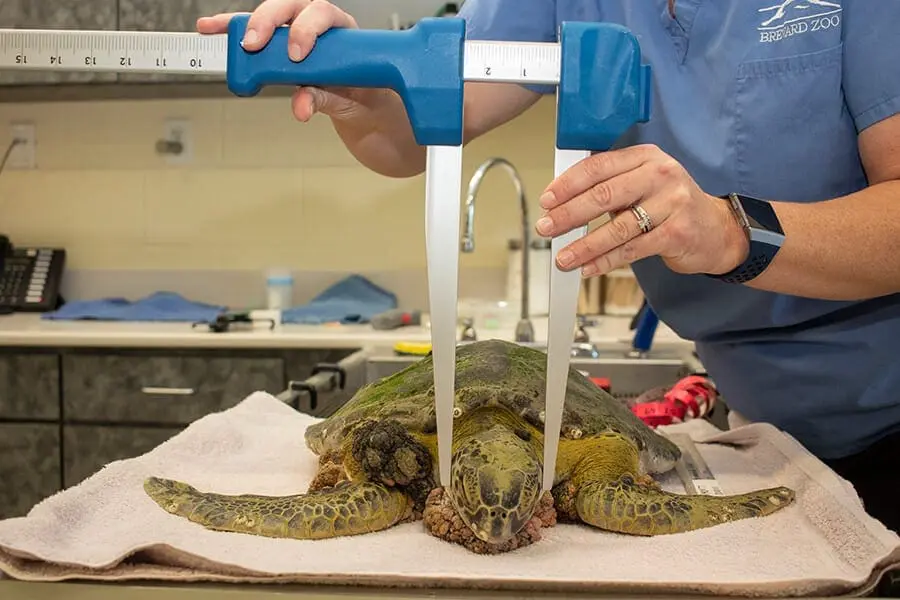

A staff member captures the dimensions of a new sea turtle patient.
Sick and injured sea turtles may be found a few different ways: by boaters in the ocean, stranded on the beach or by fishermen in the Indian River Lagoon. If a member of the public finds a sick, injured or deceased sea turtle, they should immediately contact Sea Turtle Preservation Society (STPS) at 321-676-1701 or Florida Fish and Wildlife Conservation Commission (FWC) at 1-888-404-3922.
STPS operates within Brevard County and FWC operates statewide. When called, a trained marine turtle responder will create a stranding report, which includes the observer’s information, stranding date and location, species, a visual examination and measurements. FWC will then direct the responder on what to do and/or where to take the sea turtle based on location and presenting illness. If it is decided that the sea turtle should be taken to a rehabilitation facility, it will then be determined where. More often than not, a sea turtle with fibropapilloma tumors will be taken to our Sea Turtle Healing Center as we are one of just six facilities in the state that accepts these cases.
The stranded sea turtle will then be transported to the Zoo by trained volunteers from either STPS or a conservation organization from a neighboring county, depending on the location of the stranding. Our Healing Center can take in sea turtles from anywhere in the state, but most of our sea turtles come from Brevard, Indian River and Volusia counties.
Each new patient is assigned a number and undergoes an intake exam. As part of the exam, veterinary staff assess the sea turtle’s body condition and address immediate, life-threatening concerns (if necessary); record heart rate, weight, length and width; capture radiographs; collect fecal samples; and administer fluids and medications. Because new patients typically come to us in a lethargic state, we keep them out of water overnight to minimize their energy expenditure.
The sea turtles are then named and given a temporary “home” inside a tank in the Healing Center. We then await their initial bloodwork results in order to formulate a thorough treatment plan!
Did you know it costs roughly $2,000 to treat and release just one patient? Help us get more sick and injured sea turtles back on their flippers and out in the ocean by contributing to our #GivingZOOday campaign!